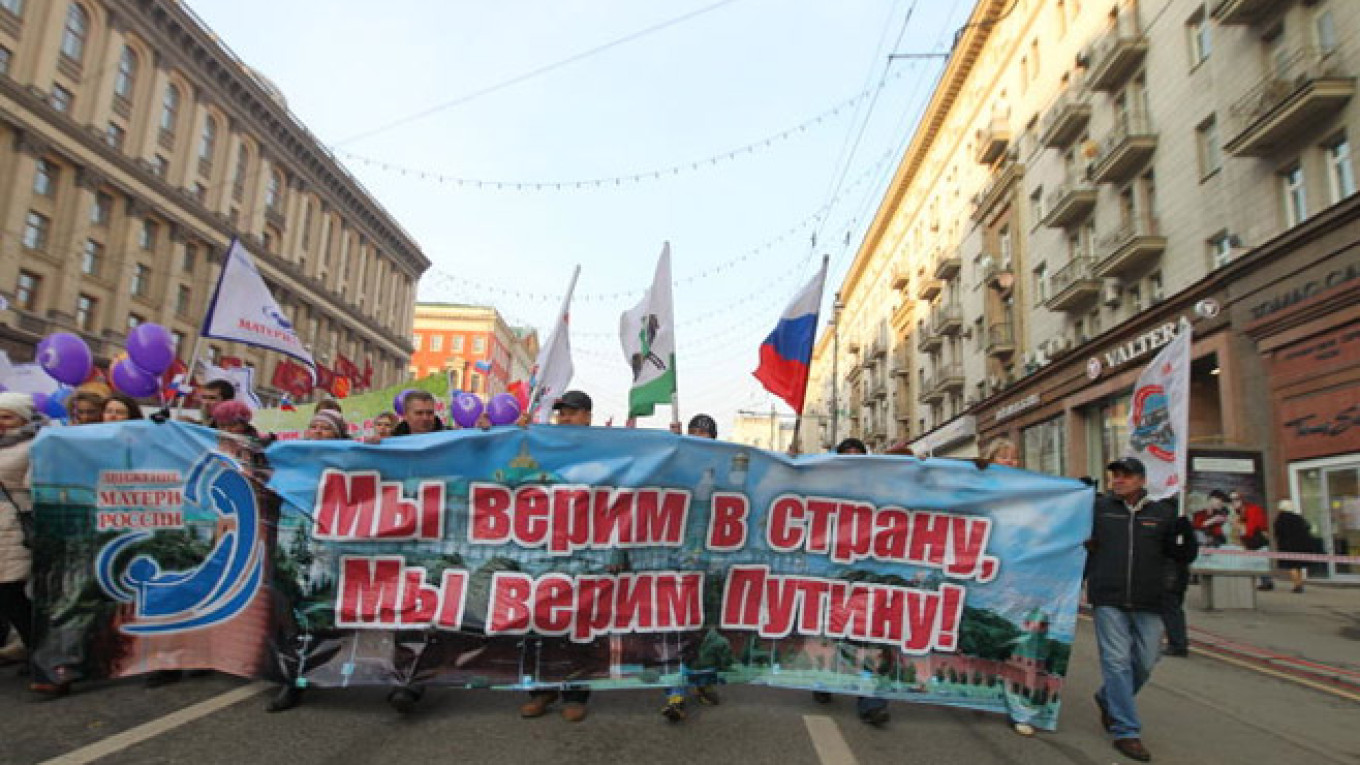President Vladimir Putin's call for a new world order to end U.S. global hegemony has generated some catchy headlines, but as a policy initiative it has been a dud.
Western capitals either ignored Putin's rhetoric or dismissed it as some ill-informed grumping. The non-Western world did not exactly rush to sign up for his anti-Pax Americana. There is no effort to organize a new Helsinki conference to reconsider international borders.
One reason for the lack of enthusiasm is that Putin provided little substance for diplomatic engagement. He outlined a wide range of Russian grievances, building a victimhood narrative of Russia taken advantage of by the West. But he was largely incoherent on what his new world order should look like.
He aims at restoring Russia's "geopolitical parity" with the U.S., securing Moscow a veto over Washington's international interventions, and the same right to use force in Russia's neighborhood. He wants a "consensus of responsible great powers," each leading a distinct "geopolitical unit" where lesser powers do not have full sovereignty and cannot chart their future independently. He grants people no agency and denies them the right to revolt against any abuse of power of their rulers.
And here lies the second reason why Putin's plan will not fly: It pushes a view of international reality that exists only on Russian television. Russia is a mid-sized power that lacks the capacity to shape the international environment single-handedly. It is not in the top league with the U.S. and China.
Moscow suffers from superpower phantom pains, but its ambitions are not backed by economic power or technological prowess. Its sole claim to superpowerdom is its nuclear weapons, brandished too cavalierly.
As Carnegie Europe analyst Ulrich Speck wrote in a recent blog post, Russia "must accept that the global order rests on the notion of territorial integrity and sovereignty, and that smaller countries have fundamental rights as well. The alternative to integrating into this order is permanent conflict, which would damage Russia much more than it can damage the West."
The problem is that Putin benefits domestically from a permanent conflict with the West. It allows him to deflect responsibility for failure to modernize the country and covers up his foreign policy blunder in Ukraine and its staggering costs for Russia. The new world order narrative is a ploy to keep this conflict going while making Moscow feel good.
Vladimir Frolov is president of LEFF Group, a government relations and PR company.
A Message from The Moscow Times:
Dear readers,
We are facing unprecedented challenges. Russia's Prosecutor General's Office has designated The Moscow Times as an "undesirable" organization, criminalizing our work and putting our staff at risk of prosecution. This follows our earlier unjust labeling as a "foreign agent."
These actions are direct attempts to silence independent journalism in Russia. The authorities claim our work "discredits the decisions of the Russian leadership." We see things differently: we strive to provide accurate, unbiased reporting on Russia.
We, the journalists of The Moscow Times, refuse to be silenced. But to continue our work, we need your help.
Your support, no matter how small, makes a world of difference. If you can, please support us monthly starting from just $2. It's quick to set up, and every contribution makes a significant impact.
By supporting The Moscow Times, you're defending open, independent journalism in the face of repression. Thank you for standing with us.
Remind me later.


